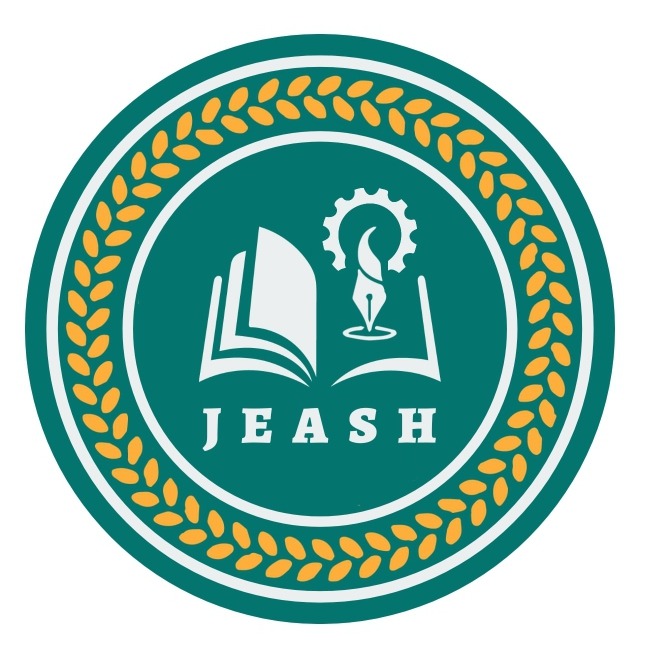Main Article Content
Abstract
This study reviewed theories that explain how single parenting influences the academic performance of students. Theories that were reviewed include the Family Deficit Model, the Risk and Protective Factor Model, the Social Exchange Theory, the Family Socialization Perspective Model, the Theory of Social Network Paradigm, the Theory of Overlapping Spheres of Influence, the Economic Deprivation Theory, and other perspectives (No-Impact Perspective and System Perspective). The no-impact perspective claims that the association between changing family structures and children’s academic outcomes can be attributed to a combination of family background factors such as parents’ education and incomes and the ethnicity or race of the family. Further, some researchers propose that much family structure research is inconclusive because it has failed to differentiate among various types of single-parent families, such as whether they result from marital disruption (divorce or separation), parental death, or a never-married parent. In addition, it is suggested that many studies fail to take into account the timing in a child’s life of family disruption, the duration of the effects of that disruption, and whether the lone parent is the father, mother, or guardian.
Keywords
Article Details

This work is licensed under a Creative Commons Attribution 4.0 International License.
References
- Abbs, J. H., & Cole, K. J. (1982). Consideration of bulbar and suprabulbar afferent influences upon speech motor coordination and programming. In Speech, motor control (pp. 159-186). Pergamon.
- Amofa, R. (2013). Effects of single parenting on adolescent’s academic performance. Master of Arts work sbmitted to the university of Cape Coast. Cape Coast: Mimeograph, UCC.
- Amofa, R. A. (2013). Effects of Single Parenting on Adolescents Academic Performance. University of Cape Coast Faculty of Social Sciences Institute for Development Studies, 1-23.
- Ampiah, J. G. (2008). An investigation of provision of quality basic education in Ghana: A case study of selected schools in the Central Region. Journal of International Cooperation in Education, 11(3), 19-37.
- Bellavia, S., & Morini, B. (2005). An interior global method for nonlinear systems with simple bounds. Optimization Methods and Software, 20(4-5), 453-474.
- Benokraitis .N. (2012, 2011, 2008). “Marriages and Families: changes, choices and constraints” uppersaddle River, New Jersey prentice Hall. Pp 121 and 431. ISBN 978-0-20500673-1“Statistics” Ginger bread. 2010. Retrieved 8 November 2010.
- Benson, T. P. (2002). Classroom Discipline and school Psychology. London: The Macmillan Company.
- Berns, R. (2007). Child, family, school, community, socialization and support. Belmont, CA: Thomas Wadsworth Inc.
- Biller, H. B., & Lopez Kimpton, J. (1997). The father and the school-aged child.
- Ceci, S., Rosenblum, T., De-Bruyn, E., & Lee, D. (1997). A bio-ecological model of human development. In R.J. Sternberg and E.L. Grogorenko (Ed.) Intelligence, heredity and environment. New York: Cambridge University Press.
- Centers for Disease Control and Prevention (CDC. (2010). Outbreak of Shiga toxin-producing Escherichia coli O111 infections associated with a correctional facility dairy-Colorado, 2010. MMWR. Morbidity and mortality weekly report, 61(9), 149-152.
- Donahoo, S. (2003). Single parenting and children's academic achievement. Journal of marriage and family, 129-147.
- Donkor, F. (2010). The comparative instructional effectiveness of print-based and video-based instructional materials for teaching practical skills at a distance. International Review of Research in Open and Distributed Learning, 11(1), 96-116.
- Dowd, C. D., Smith, M. H., Consterdine, I. E., & Lowe, J. A. (1997). Marine aerosol, sea-salt, and the marine sulphur cycle: A short review. Atmospheric Environment, 31(1), 73-80.
- Elam, S., Rose, L., & Gallup, A. (1994). The 26th annual Phi Delta Kappa/Gallupe Poll of the public's attitudes towward the public schools. Phi Delta Kappan, 75, 137-152.
- Epstein, J. (1987). Toward a theory of family-school connections: Teacher practice and parent involvement. In K. Kaufmann & F. Losel (Eds.), Social intervention: Potential and constriant (pp. 121-136)s. New York: DeGruyter.
- Epstein, J., & Becker, H. (1982). Teachers' reported practices of parent involvement: Problems and possibilities. Elementary school journal, 83, 103-113.
- Fraenkel, J., & Wallen, N. (1993). How to design and evaluate research in education (2nd Ed.). Boston: McGraw-Hill Higher Education.
- Frimpong, D. E. (2003). Kumasi Anglican gets government fund. (p. 20). Kumasi: Daily Graphic (No.148877).
- Fry, P., & Scher, A. (1984). The effects of father absence on children's achievement, motivation, ego-strength and locus-control orientation: A five-year logitudinal assessment. British journal of developmental psychology, 2, 167-178.
- Gershoff, E., Aber, J., Raver, C., & Lennon, M. (2006). Income is not enough: Incorporating material hardship into models of income association with parenting and child development. Journal of child development, 78, 70-95.
- Giblin, P. (1996). Family strengths. The family journal, 4, 339-349.
- Ginther, D. (2004). Family structure and children's educational outcomes: Blend familes,
- Hansen, J. B. (2000). Student performance and Student Growth as measure of success: An evaluator’s perspective ‘paper presented at annual meeting of the American Education Research Association New Orleans. Louisiana, April 25, 2000.
- Hanson, S. (1986). Healthy single parent families. Family relations, 35, 125-132.
- Hara, S. R., & Burke, D. J. (1998). Parent involvement: The key to improved student achievement. School community journal, 8(2), 9-19.
- Harb, N., & El-Shaarawi, A. (2006). Factors Affecting Students’ Performance. Munich Personal RePec Archive (MRPA) Paper No. 13621.
- Harris, A., & Chrispeels, J. H. (Eds.). (2006). Improving schools and educational systems: International perspectives. Routledge.
- Henslin, J. (1985). Down to earth sociology: An introductory reading. New York: Macmillan.
References
Abbs, J. H., & Cole, K. J. (1982). Consideration of bulbar and suprabulbar afferent influences upon speech motor coordination and programming. In Speech, motor control (pp. 159-186). Pergamon.
Amofa, R. (2013). Effects of single parenting on adolescent’s academic performance. Master of Arts work sbmitted to the university of Cape Coast. Cape Coast: Mimeograph, UCC.
Amofa, R. A. (2013). Effects of Single Parenting on Adolescents Academic Performance. University of Cape Coast Faculty of Social Sciences Institute for Development Studies, 1-23.
Ampiah, J. G. (2008). An investigation of provision of quality basic education in Ghana: A case study of selected schools in the Central Region. Journal of International Cooperation in Education, 11(3), 19-37.
Bellavia, S., & Morini, B. (2005). An interior global method for nonlinear systems with simple bounds. Optimization Methods and Software, 20(4-5), 453-474.
Benokraitis .N. (2012, 2011, 2008). “Marriages and Families: changes, choices and constraints” uppersaddle River, New Jersey prentice Hall. Pp 121 and 431. ISBN 978-0-20500673-1“Statistics” Ginger bread. 2010. Retrieved 8 November 2010.
Benson, T. P. (2002). Classroom Discipline and school Psychology. London: The Macmillan Company.
Berns, R. (2007). Child, family, school, community, socialization and support. Belmont, CA: Thomas Wadsworth Inc.
Biller, H. B., & Lopez Kimpton, J. (1997). The father and the school-aged child.
Ceci, S., Rosenblum, T., De-Bruyn, E., & Lee, D. (1997). A bio-ecological model of human development. In R.J. Sternberg and E.L. Grogorenko (Ed.) Intelligence, heredity and environment. New York: Cambridge University Press.
Centers for Disease Control and Prevention (CDC. (2010). Outbreak of Shiga toxin-producing Escherichia coli O111 infections associated with a correctional facility dairy-Colorado, 2010. MMWR. Morbidity and mortality weekly report, 61(9), 149-152.
Donahoo, S. (2003). Single parenting and children's academic achievement. Journal of marriage and family, 129-147.
Donkor, F. (2010). The comparative instructional effectiveness of print-based and video-based instructional materials for teaching practical skills at a distance. International Review of Research in Open and Distributed Learning, 11(1), 96-116.
Dowd, C. D., Smith, M. H., Consterdine, I. E., & Lowe, J. A. (1997). Marine aerosol, sea-salt, and the marine sulphur cycle: A short review. Atmospheric Environment, 31(1), 73-80.
Elam, S., Rose, L., & Gallup, A. (1994). The 26th annual Phi Delta Kappa/Gallupe Poll of the public's attitudes towward the public schools. Phi Delta Kappan, 75, 137-152.
Epstein, J. (1987). Toward a theory of family-school connections: Teacher practice and parent involvement. In K. Kaufmann & F. Losel (Eds.), Social intervention: Potential and constriant (pp. 121-136)s. New York: DeGruyter.
Epstein, J., & Becker, H. (1982). Teachers' reported practices of parent involvement: Problems and possibilities. Elementary school journal, 83, 103-113.
Fraenkel, J., & Wallen, N. (1993). How to design and evaluate research in education (2nd Ed.). Boston: McGraw-Hill Higher Education.
Frimpong, D. E. (2003). Kumasi Anglican gets government fund. (p. 20). Kumasi: Daily Graphic (No.148877).
Fry, P., & Scher, A. (1984). The effects of father absence on children's achievement, motivation, ego-strength and locus-control orientation: A five-year logitudinal assessment. British journal of developmental psychology, 2, 167-178.
Gershoff, E., Aber, J., Raver, C., & Lennon, M. (2006). Income is not enough: Incorporating material hardship into models of income association with parenting and child development. Journal of child development, 78, 70-95.
Giblin, P. (1996). Family strengths. The family journal, 4, 339-349.
Ginther, D. (2004). Family structure and children's educational outcomes: Blend familes,
Hansen, J. B. (2000). Student performance and Student Growth as measure of success: An evaluator’s perspective ‘paper presented at annual meeting of the American Education Research Association New Orleans. Louisiana, April 25, 2000.
Hanson, S. (1986). Healthy single parent families. Family relations, 35, 125-132.
Hara, S. R., & Burke, D. J. (1998). Parent involvement: The key to improved student achievement. School community journal, 8(2), 9-19.
Harb, N., & El-Shaarawi, A. (2006). Factors Affecting Students’ Performance. Munich Personal RePec Archive (MRPA) Paper No. 13621.
Harris, A., & Chrispeels, J. H. (Eds.). (2006). Improving schools and educational systems: International perspectives. Routledge.
Henslin, J. (1985). Down to earth sociology: An introductory reading. New York: Macmillan.






